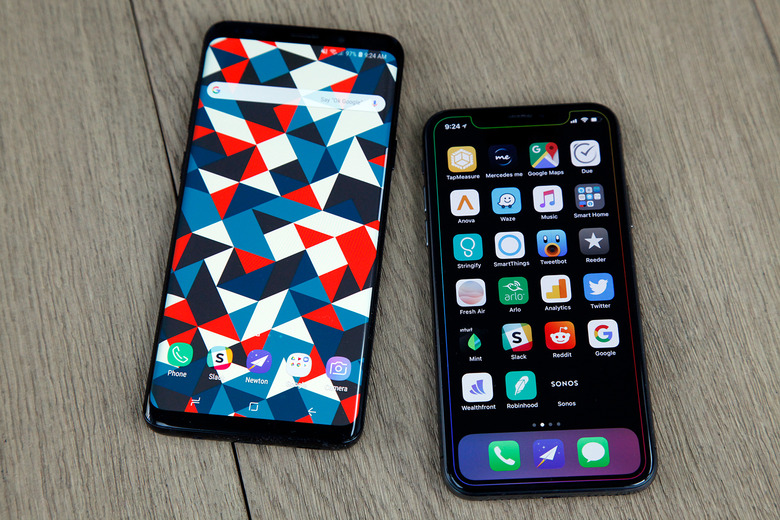Samsung Reportedly Seeking Compensation Because Apple Isn't Selling Enough iPhones
While Samsung keeps comparing its flagship phones to the latest iPhones that Apple makes in the hopes of convincing customers that Galaxy phones are a better option, Samsung is also a huge fan of the iPhone. That's because Samsung is a supplier of iPhone parts, and these Apple deals can be very lucrative. The best example concerns the iPhone's OLED screen, which is very expensive. Samsung Display happens to be the supplier of most iPhone OLED panels, as Samsung makes the best OLED screens for smartphones. But it turns out that Samsung isn't happy with iPhone sales, and wants Apple to pay a hefty penalty for all the iPhone screens that it failed to purchase as a result of the slower than expected iPhone sales.
A report from ETNews says that Samsung Display seeks compensation amounting to hundreds of billions of won, which converts to hundreds of millions of dollars. Apple had reportedly agreed to acquire a certain quality of panels from Samsung Display but then failed to meet these numbers. Samsung Display and Apple have been negotiating the matter but have yet to agree on terms.
Samsung invested in an A3 display facility that would cater only to Apple, a 6th-generation flexible OLED plant that can produce about 100 million OLED iPhone screens each year. But it's unclear what the minimum supply Apple agreed to buy might've been.
Production at the A3 plant fell to under 50% of capacity as demand for iPhone sales remained sluggish, the report notes. Sales for the iPhone XS generation that followed 2017's iPhone X wasn't spectacular either, and Apple was often rumored to have cut OLED panel orders as a result. Samsung Display's operating profit dropped to 2.62 trillion won last year, about half of the 5.7 trillion the company reported in 2017, a figure that perfectly reflects the smartphone sales slump. Galaxy sales have been slower than expected as well, and these devices also pack OLED screens from Samsung Display.
Meeting quotas isn't the only problem between the two parties, ETNews says. Apparently, Samsung Display has experienced some manufacturing issues with some of the OLED panels it supplied to Apple, and it may have been charged a "small penalty."
ETNews also notes that failing to meet quotas might be a problem for Apple's deals with other panel suppliers, although screen makers rarely seek reimbursements. Instead, Apple may ink additional display deals with those manufacturers that cover other products.
Interestingly, the report notes that Apple has offered such options to Samsung Display for OLED panels that would fit tablets and notebooks. So far, but none of the existing iPads or MacBooks feature OLED screens. Earlier rumors have said that Apple is considering OLED panels for other devices, MacBooks included.
